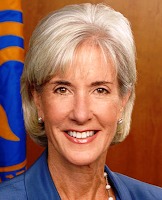 The U.S. Department of Health & Human Services (HHS) Secretary Kathleen Sebelius announced earlier this month the availability of a new toll-free helpline to provide information, support and counseling for families and children affected by the BP Deepwater Horizon oil spill. Part of the Obama Administration’s long term oil spill recovery plan, the Oil Spill Distress Helpline (1-800-985-5990) links callers to behavioral healthcare services and will serve as an important resource for the localized oil spill outreach efforts in the Gulf Coast states.
The U.S. Department of Health & Human Services (HHS) Secretary Kathleen Sebelius announced earlier this month the availability of a new toll-free helpline to provide information, support and counseling for families and children affected by the BP Deepwater Horizon oil spill. Part of the Obama Administration’s long term oil spill recovery plan, the Oil Spill Distress Helpline (1-800-985-5990) links callers to behavioral healthcare services and will serve as an important resource for the localized oil spill outreach efforts in the Gulf Coast states.“We know that residents throughout the Gulf Coast region continue to deal with the disruption to their livelihoods and communities caused by the oil spill. The resulting stress they are feeling is real and if behavioral health conditions are left untreated, we can expect that the situations these individuals and their families are living in will worsen,” said Secretary Sebelius. “The Oil Spill Distress Helpline will be a critical tool in getting people the help they need, and I want to acknowledge the state, local and federal partnership that helped get it set up and available.”
Administered by the Substance Abuse and Mental Health Services Administration (SAMHSA), the Helpline will route callers to the nearest Gulf Coast area crisis center, where trained staff from the region will answer calls and provide assistance. In addition, these crisis centers are working to provide support via text messages, a capability which will launch later this fall.
“History tells us that the emotional impact of the devastating losses experienced by individuals and families as a result of the oil spill will continue to play out over the years to come,” said SAMHSA Administrator Pamela S. Hyde, J.D. “Now that the immediate response phase has come to a close, we are shifting our focus to long term recovery and being there for gulf coast residents in need of emotional strength as they rebuild their lives.”
The helpline is funded by BP’s contribution to SAMHSA, which will help states to provide counseling and support for individuals and families in the Gulf Coast region affected by the oil spill.
For more information, visit the HHS BP Gulf Oil Spill page at www.hhs.gov/gulfoilspill/index.html.

No comments:
Post a Comment